Asylum
Asylum grants legal protection to foreign nationals already in the U.S. or arriving at the border who can’t go back to their home country because of persecution. Learn more about the asylum system in the United States, including how asylum is defined, eligibility requirements, and the difficult and complex application process.

Federal Court Finds Conditions in Customs and Border Protection Detention Facilities Unconstitutional
A federal court ordered U.S. Customs and Border Protection to overhaul the way the agency detains people in its custody in the Tucson Sector. The court found that the conditions in CBP holding cells, especially those that preclude sleep over several nights, are presumptively punitive and violate the U.S. Constitution. Read More
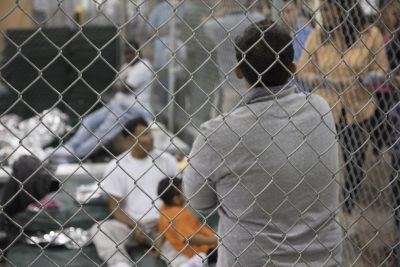
Conditions in Border Facilities Deny Asylum Seekers Meaningful Screening Interviews
In U.S. Customs and Border Protection (CBP) custody, asylum seekers are detained in horribly cold and overcrowded facilities, unable to sleep, without access to food, water, or adequate medical care, and without access to an attorney. Under two new government processes—the Prompt Asylum Claim Review (PACR) and the Humanitarian Asylum… Read More

Las Americas Immigrant Advocacy Center v. Wolf
The American Immigration Council and the American Immigration Lawyers Association submitted an amicus brief in Las Americas Immigrant Advocacy Center v. Wolf, a case filed by the American Civil Liberties Union (ACLU) of Texas, the ACLU Immigrants’ Rights Project, and ACLU of the District of Columbia. The amicus brief urges the… Read More
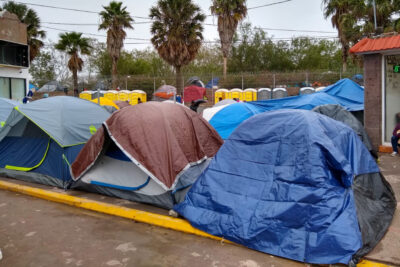
A Humanitarian Catastrophe at the Border: One Year of the ‘Migrant Protection Protocols’
One year ago today, a confused Honduran man seeking asylum in the United States became the first person to be turned away from the border and sent back to Mexico to await a U.S. court hearing. He would become the first of nearly 60,000 people subjected… Read More

Comments on Proposed Restrictions to Asylum Procedures and Bars to Eligibility
The Trump administration has proposed amending regulations that affect asylum eligibility. If implemented, the regulations would shut America’s doors to many of those most in need of protection. The Council opposes the proposed new rules, which include sweeping new criminal bars and changes in the treatment of vacated convictions and sentences.
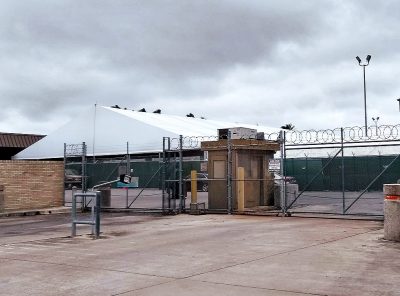
Tent Immigration Courts Are Still Not Fully Open to the Public
Asylum seekers subject to the Migrant Protection Protocols—or the “Remain in Mexico” program—in Laredo and Brownsville, Texas attend their court hearings in tents known as “port courts.” The government announced these secretive courts would finally be opened last week, but the public still does not have full access. For the… Read More
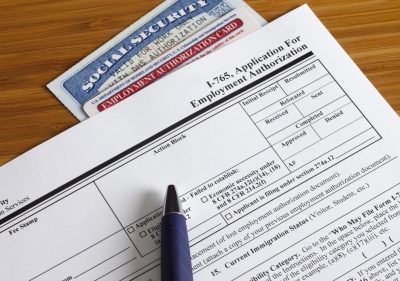
Changes to Work Permit Eligibility Leave Asylum Seekers Without a Job
People who come to the United States in search of protection must be allowed to work during the often-lengthy asylum application process. They need to be able to support themselves and their families. Yet the Trump administration wants to make it harder for asylum seekers to… Read More
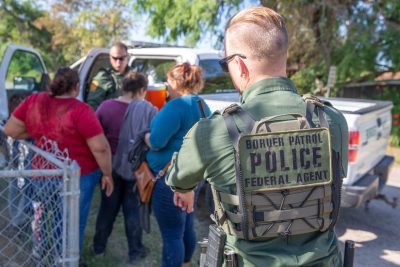
What Are the Proposed New Bars to Asylum?
In yet another move to gut asylum protections in the United States, the Trump administration proposed a rule last month that would add severe new restrictions on asylum access. The restrictions would apply to people convicted of—and in some cases, merely accused of—a wide range of… Read More

Demanding Records About the Migrant Protection Protocols Program
The Migrant Protection Protocols—also known as Remain in Mexico—raises alarming safety and due process questions. However, the government has kept information on how the program is being implemented. Read More
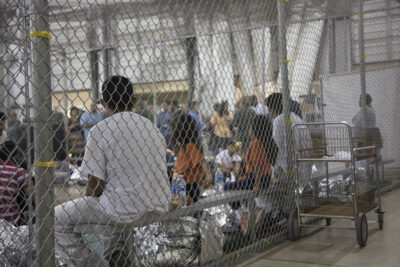
The Government Knew It Didn’t Have the Technology to Track Separated Families. It Did So Anyway.
U.S. Customs and Border Protection (CBP)—the agency responsible for systematically separating thousands of migrant families in the summer of 2018—lacked the technology or mechanisms to record and track the separations, a government watchdog group recently found. Family separations—done under the Trump administration’s “Zero Tolerance policy”—started before the policy was… Read More
Make a contribution
Make a direct impact on the lives of immigrants.
